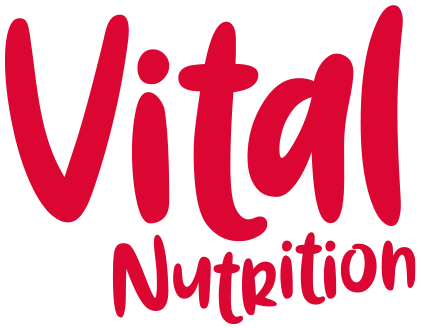How to meet a woman's unique nutritional needs
Last week we celebrated International Women's Day and it got me thinking about the unique nutritional needs of women throughout their lives.
From puberty to menopause, female hormones can have a big impact on energy, mood, stress and well-being.
If we know how to eat to help support healthy hormone balance, then we can go a long way to helping manage female hormones.
1. Balance your blood sugar levels
This is the foundation for healthy hormones when it comes to nutrition. If you have ever craved a big bar of chocolate before your period then you know what I am talking about.
Sugar plays havoc with our hormones, so cut right back and find alternatives for your favourite sweet treats.
Dark chocolate, natural yoghurt and fruit or oatcakes and nut butter work well.
Remember that white and refined carbs also affect blood sugar balance, so opt for wholegrains instead.
2. Eat some phytoestrogens
Phytoestrogens may help to restore hormone balance.
Found predominantly in flaxseeds, beans and lentils there are some easy ways to include more of these foods in your diet:
Add a spoonful of milled flaxseed to porridge or yoghurt.
Add chickpeas to curry.
Bulk out Bolognese with puy lentils.
Eat more houmous.
Add beans or lentils to salads.
3. Keep things regular
The female body detoxifies hormones through our liver and then we excrete these metabolites through the urinary and digestive tracts.
If we get constipated, we can back up this system and end up recirculating hormones, leading to imbalances, so it is super important to eat in a way to help support regular bowel movements and a healthy digestive tract.
Here's how:
Drink enough water.
Eat foods rich in soluble fibre - beans, lentils, fruit, vegetables, oats, nuts and seeds.
Eat wholegrains.
Exercise regularly.
Eat some probiotic foods e.g. live yoghurt, sauerkraut, kefir.
4. Love your liver
The liver packs up hormones that we have used, so that they can be safely excreted.
Sulphur-rich foods help to support these important pathways that detoxify oestrogen.
So eat up sulphur rich foods like eggs, onion, garlic, scallions, leeks, broccoli, cauliflower, cabbage, kale and rocket.
What to reduce:
Alcohol
Alcohol can contribute to anxiety, low mood, disrupted sleep, reduced stress resilience, hormone imbalances, blood sugar fluctuations and adds extra strain on the liver that is working so hard to help us balance hormones.
Caffeine
A lot of caffeine has been linked to PMS and hot flushes at menopause.
It can also contribute to symptoms of stress or anxiety. Choose green tea, herbal teas or decaf for a few weeks and notice the difference.
Sugar and artificial sweeteners
It sees there is a big link between sugar and PMS, PCOS, hot flushes and other symptoms of female hormone imbalance.
Artificial sweeteners such as sucralose, Acesulfame K and aspartame have been shown to negatively affect digestive health and may contribute to bloating and digestive disturbances.
Supplements for women’s health
It is a good idea for women of all ages to take a good quality multivitamin suitable for their age and stage of life, but there are a few other key ingredients worth considering too.
Magnesium
Women with PMS have been shown to have low magnesium and one study found a 35 per cent reduction in PMS symptoms after three months' supplementation with 250mg magnesium daily.
Vitamin B6
There is some evidence to suggest that magnesium is more effective for mood-related PMS symptoms when combined with vitamin B6.
Essential fats
Essential fats like omega 3 from fish oils and evening primrose oil have some merit in helping support a healthy balance of female hormones.
This blog post first appeared as my column in The Irish News on Saturday 12th March 2022.

